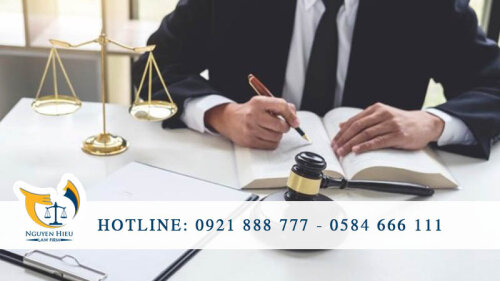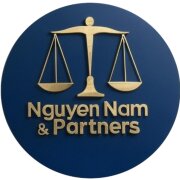Best Housing, Construction & Development Lawyers in Dong Nai
Share your needs with us, get contacted by law firms.
Free. Takes 2 min.
Free Guide to Hiring a Real Estate Lawyer
List of the best lawyers in Dong Nai, Vietnam
About Housing, Construction & Development Law in Dong Nai, Vietnam
Dong Nai is one of Vietnam's most rapidly developing provinces, strategically located near Ho Chi Minh City and part of the southern key economic region. The province has experienced robust urbanization and industrial growth, making housing, construction, and development a central focus for both residents and investors. The legal landscape governing these areas is shaped by national regulations and local policies designed to manage land use, construction activities, property transactions, and urban planning, all while promoting economic growth and protecting the rights of individuals and businesses.
Why You May Need a Lawyer
Engaging a lawyer with expertise in housing, construction, and development in Dong Nai can be crucial in several situations. Lawyers can help you navigate complex legal requirements, ensure compliance with local and national regulations, and protect your interests in both residential and commercial matters. Common scenarios where legal assistance is beneficial include:
- Buying, selling, or leasing property
- Dealing with land use and zoning regulations
- Drafting and reviewing construction contracts
- Obtaining construction permits and approvals
- Handling disputes related to land boundaries, ownership, or inheritance
- Resolving issues with developers or contractors regarding quality or delays
- Understanding foreign ownership rights and investment in real estate
Local Laws Overview
Housing, construction, and development in Dong Nai are regulated by a combination of national laws such as the Law on Housing, the Law on Construction, and the Land Law, as well as local regulations issued by the Provincial People’s Committee. Key aspects that residents and investors should be aware of include:
- Land Ownership: Land is owned by the state and individuals or organizations are granted land use rights. Distinctions exist between land types (residential, agricultural, commercial, etc.), and the legal documents for each are essential for transactions.
- Construction Permits: Prior to building, a construction permit must be obtained for most types of projects, with specific procedures for residential, commercial, and industrial developments.
- Housing Transactions: Contracts involving the purchase, sale, lease, or inheritance of property must comply with legal forms and often require notarization or authentication.
- Dispute Resolution: Land or construction disputes can be resolved through negotiation, mediation, or legal action in local courts, depending on the circumstances.
- Foreign Involvement: Foreign individuals and entities have certain rights to own and use property, subject to specific conditions outlined in Vietnamese law.
Frequently Asked Questions
What steps are required to buy a house in Dong Nai?
To buy a house, you must verify the seller’s land use rights, draft a sales contract (typically notarized), pay applicable taxes and fees, and register the change in ownership with the local Land Registration Office.
Can foreigners own property in Dong Nai?
Yes, foreigners can purchase and own certain types of residential property (such as apartments and houses in eligible projects) but are generally not allowed to own land. Ownership is subject to quotas and other legal requirements.
What are common reasons for construction permit denial?
A construction permit application may be denied if documents are incomplete, the project violates zoning regulations, or planned designs are not in accordance with approved master plans.
Are construction contracts mandatory?
Yes, written contracts outlining the scope of work, deadlines, payment terms, and responsibilities are required for most construction projects. This helps prevent disputes and clarifies expectations.
How are housing disputes usually resolved?
Disputes can be resolved through direct negotiation, mediation by local authorities, or legal proceedings in the People’s Court. Many cases are settled at the provincial or district level.
What taxes and fees apply when transferring property ownership?
Buyers and sellers are required to pay taxes such as personal income tax (for the seller), registration fees, and other administrative charges during the property transfer process.
Can I build on agricultural land?
Building non-agricultural structures on agricultural land is generally prohibited unless you apply for a change in land use purpose, which must be approved by local authorities.
What should I check before signing a construction contract?
Ensure the contractor has proper licenses, review the design and technical standards, clarify payment terms and timelines, and confirm that the land use rights are legitimate.
How do I verify land use rights?
Request to see the Land Use Rights Certificate (commonly known as the "Red Book") and ensure there are no disputes, mortgages, or restrictions registered against the property.
Who can help if I have problems with a developer?
You can seek assistance from a lawyer, the local Department of Construction, the Provincial People’s Committee, or initiate legal proceedings if negotiations fail.
Additional Resources
Several organizations and governmental bodies can provide guidance and support regarding housing, construction, and development in Dong Nai:
- Dong Nai Provincial Department of Construction
- Dong Nai Department of Natural Resources and Environment
- Dong Nai Land Registration Office
- Provincial People’s Committee of Dong Nai
- Local notary offices
- Local branches of the Vietnam Bar Federation
- Community legal aid centers and public legal service offices
Next Steps
If you need legal assistance with housing, construction, or development in Dong Nai, first gather all relevant documents such as land use rights certificates, contracts, correspondence, and permit applications. Identify the specific issue you are facing, whether it is related to transactions, permits, contracts, or disputes. Then, contact a qualified local lawyer who specializes in real estate and construction law to review your case and provide tailored advice. If your case involves administrative procedures, these can often be addressed through local government offices or public legal aid centers. For complex matters, such as disputes or investment projects, professional legal support is highly recommended to ensure your interests are protected and all actions comply with Vietnamese law.
Lawzana helps you find the best lawyers and law firms in Dong Nai through a curated and pre-screened list of qualified legal professionals. Our platform offers rankings and detailed profiles of attorneys and law firms, allowing you to compare based on practice areas, including Housing, Construction & Development, experience, and client feedback.
Each profile includes a description of the firm's areas of practice, client reviews, team members and partners, year of establishment, spoken languages, office locations, contact information, social media presence, and any published articles or resources. Most firms on our platform speak English and are experienced in both local and international legal matters.
Get a quote from top-rated law firms in Dong Nai, Vietnam — quickly, securely, and without unnecessary hassle.
Disclaimer:
The information provided on this page is for general informational purposes only and does not constitute legal advice. While we strive to ensure the accuracy and relevance of the content, legal information may change over time, and interpretations of the law can vary. You should always consult with a qualified legal professional for advice specific to your situation.
We disclaim all liability for actions taken or not taken based on the content of this page. If you believe any information is incorrect or outdated, please contact us, and we will review and update it where appropriate.










